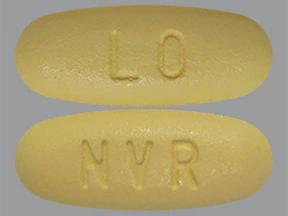Tabrecta Dosage
Generic name: CAPMATINIB HYDROCHLORIDE 150mg
Dosage form: tablet, film coated
Drug class: Multikinase inhibitors
Medically reviewed by Drugs.com. Last updated on Aug 12, 2025.
2.1 Patient Selection
Select patients for treatment with TABRECTA based on the presence of a mutation that leads to MET exon 14 skipping in tumor or plasma specimens. If a mutation that leads to MET exon 14 skipping is not detected in a plasma specimen, test tumor tissue if feasible. Information on FDA-approved tests is available at: http://www.fda.gov/CompanionDiagnostics.
2.2 Recommended Dosage
The recommended dosage of TABRECTA is 400 mg orally twice daily with or without food.
Swallow TABRECTA tablets whole. Do not break, crush or chew the tablets.
If a patient misses or vomits a dose, instruct the patient not to make up the dose, but to take the next dose at its scheduled time.
2.3 Dosage Modifications for Adverse Reactions
The recommended dose reductions for the management of adverse reactions are listed in Table 1.
| Dose reduction | Dose and schedule |
| First | 300 mg orally twice daily |
| Second | 200 mg orally twice daily |
Permanently discontinue TABRECTA in patients who are unable to tolerate 200 mg orally twice daily.
The recommended dosage modifications of TABRECTA for adverse reactions are provided in Table 2.
| Abbreviations: ALT, alanine aminotransferase; AST, aspartate aminotransferase; ILD, interstitial lung disease; ULN, upper limit of normal. Grading according to Common Terminology Criteria for Adverse Events (CTCAE) version 5.0. |
||
| Adverse reaction | Severity | Dosage modification |
| Interstitial Lung Disease (ILD)/Pneumonitis |
Any grade | Permanently discontinue TABRECTA. |
| Increased ALT and/or AST without increased total bilirubin |
Grade 3 | Withhold TABRECTA until recovery to baseline ALT/AST. If recovered to baseline within 7 days, then resume TABRECTA at the same dose; otherwise resume TABRECTA at a reduced dose. |
| Grade 4 | Permanently discontinue TABRECTA. | |
| Increased ALT and/or AST with increased total bilirubin in the absence of cholestasis or hemolysis |
ALT and/or AST greater than 3 times ULN with total bilirubin greater than 2 times ULN | Permanently discontinue TABRECTA. |
| Increased total bilirubin without concurrent increased ALT and/or AST |
Grade 2 | Withhold TABRECTA until recovery to baseline bilirubin. If recovered to baseline within 7 days, then resume TABRECTA at the same dose; otherwise resume TABRECTA at a reduced dose. |
| Grade 3 | Withhold TABRECTA until recovery to baseline bilirubin. If recovered to baseline within 7 days, then resume TABRECTA at a reduced dose; otherwise permanently discontinue TABRECTA. |
|
| Grade 4 | Permanently discontinue TABRECTA. | |
| Increased lipase or amylase |
Grade 3 | Withhold TABRECTA until ≤ Grade 2 or baseline. If recovered to baseline or ≤ Grade 2 within 14 days, resume TABRECTA at a reduced dose; otherwise permanently discontinue TABRECTA. |
| Grade 4 | Permanently discontinue TABRECTA. | |
| Pancreatitis |
Grade 3 or Grade 4 | Permanently discontinue TABRECTA. |
| Hypersensitivity |
All Grades | If hypersensitivity is suspected based on clinical judgment, withhold TABRECTA until resolution of the event. Permanently discontinue TABRECTA in patients who develop serious hypersensitivity reactions. |
| Other adverse reactions |
Grade 2 | Maintain dose level. If intolerable, consider withholding TABRECTA until resolved, then resume TABRECTA at a reduced dose. |
| Grade 3 | Withhold TABRECTA until resolved, then resume TABRECTA at a reduced dose. | |
| Grade 4 | Permanently discontinue TABRECTA. | |
Frequently asked questions
More about Tabrecta (capmatinib)
- Check interactions
- Compare alternatives
- Pricing & coupons
- Reviews (1)
- Drug images
- Side effects
- During pregnancy
- FDA approval history
- Drug class: multikinase inhibitors
- Breastfeeding
- En español
Patient resources
Professional resources
Related treatment guides
See also:
Further information
Always consult your healthcare provider to ensure the information displayed on this page applies to your personal circumstances.


